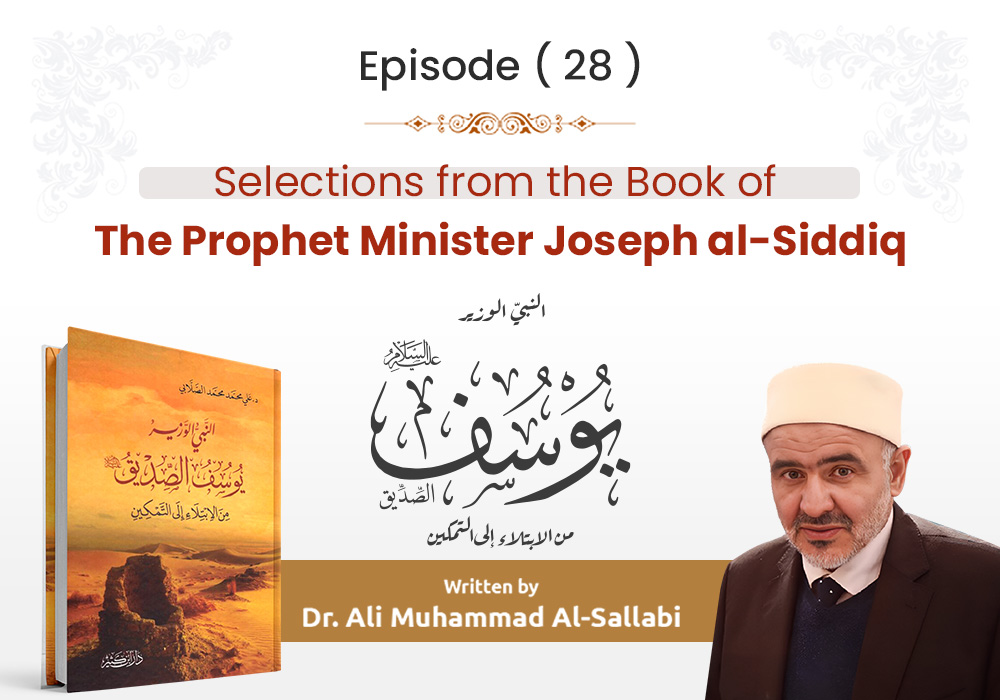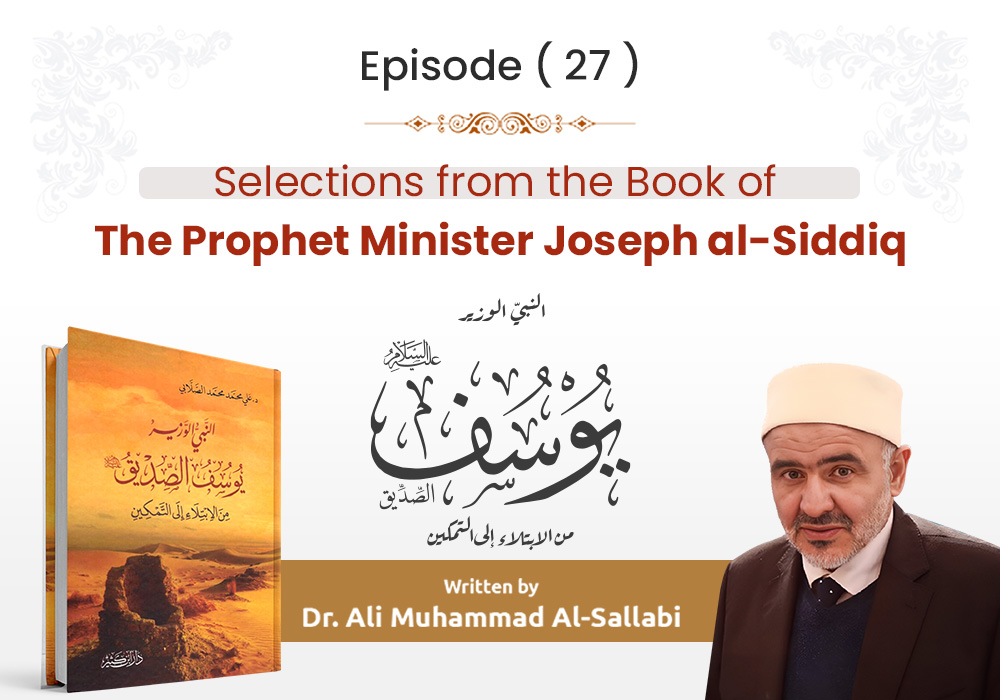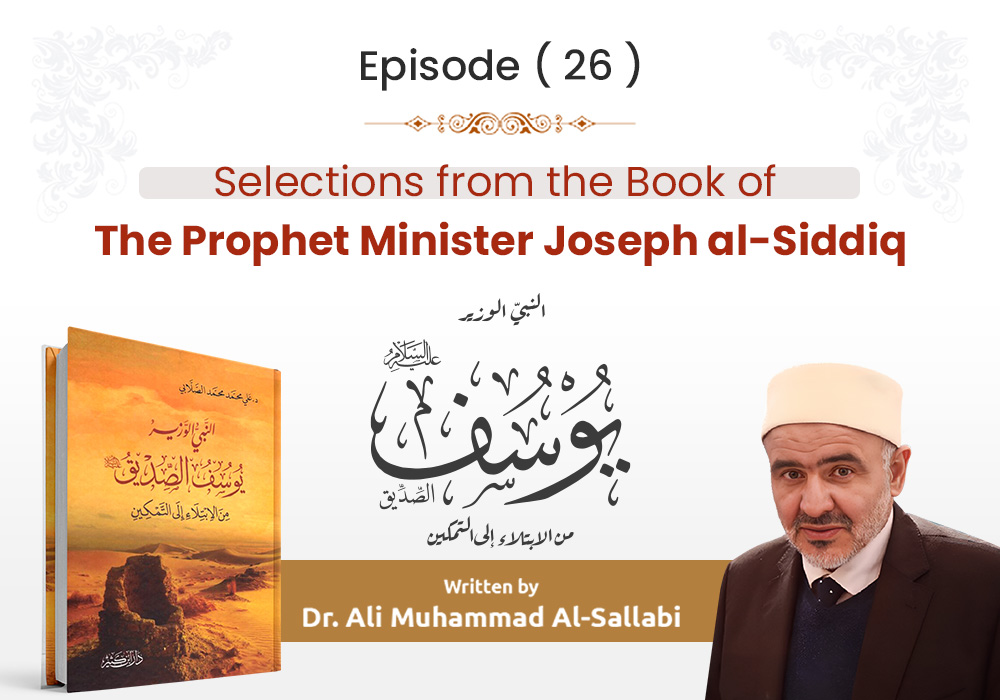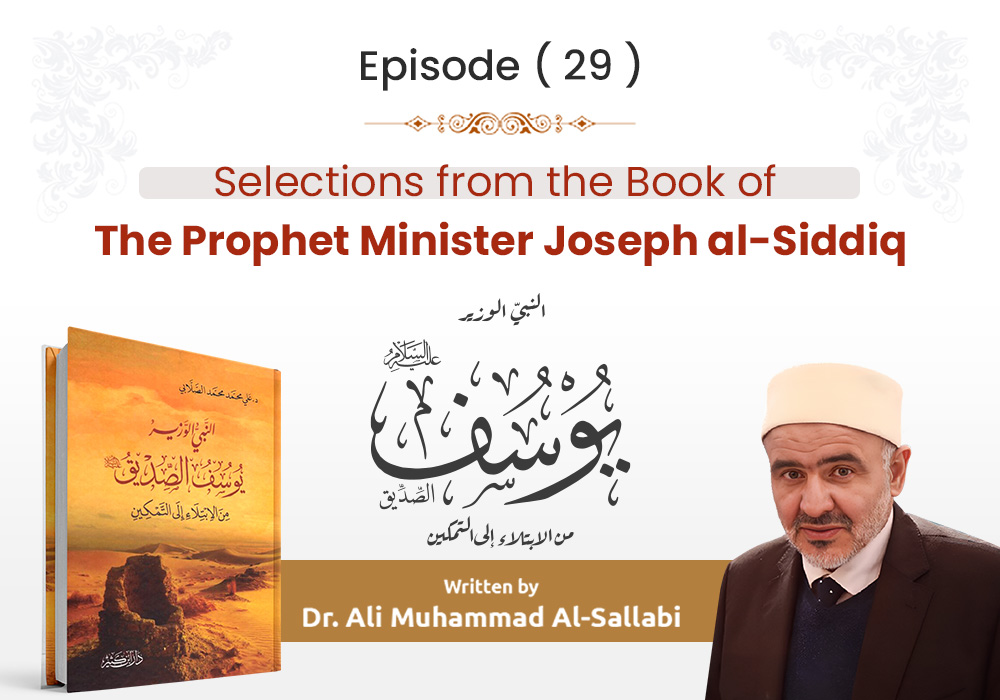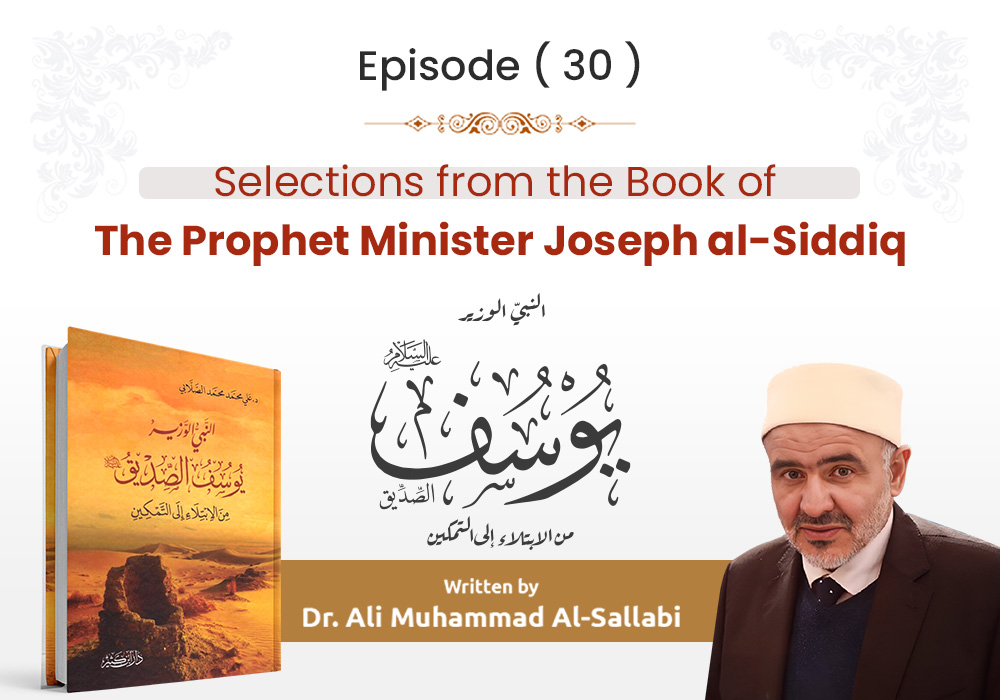The beginning of the history of the children of Israel and The tribes/Descendants
Selections from the Book The Prophet Minister Joseph al-Siddiq…
Written by Dr. Ali Muhammad al-Sallabi...
Episode (28)
- The beginning of the history of the children of Israel from Jacob:
The history of the children of Israel begins with Jacob (peace be upon him), and their connection to Abraham is the same as their connection to Ishmael (peace be upon them). Isn’t Ismail an uncle of Jacob? Isn't he the brother of his father Isaac? So why don't they make his history their history even though he is their father's uncle?
If they were the children of Abraham, their history would begin from the history of Abraham, and if they were the children of Isaac, their history would begin from the history of Isaac. Because they are the children of Israel, that is: the children of Jacob, their history begins with the history of Jacob (peace be upon him), and they can stop at his life and the lives of his twelve sons and consider this as the beginning of their existence, their life, and their history, for those whose origin and lineage are proven to be Jacob, peace be upon him.
- Who are the tribes/Descendants [Al-Asbat]:
The word "Descendants" is mentioned in the Quran five times. Four of these occurrences are in the context of listing the names of some prophets, and these verses emphasize the necessity of believing in those who are named as the tribes. These prophets are honorable figures from the Children of Israel, among these verses:
- Almighty Allah says: {Say, [O believers], "We have believed in Allah and what has been revealed to us and what has been revealed to Abraham and Ishmael and Isaac and Jacob and the Descendants [al-Asbat] and what was given to Moses and Jesus and what was given to the prophets from their Lord. We make no distinction between any of them, and we are Muslims [in submission] to Him"} [Al-Baqarah: 136].
- The word “Descendants” also appeared in Surah Al Imran, and in the same context, Almighty Allah said: {Say, "We have believed in Allah and in what was revealed to us and what was revealed to Abraham, Ishmael, Isaac, Jacob, and the Descendants [al-Asbat], and in what was given to Moses and Jesus and to the prophets from their Lord. We make no distinction between any of them, and we are Muslims [submitting] to Him"} [Al Imran: 84].
- The word “Descendants” also appeared in Surah An-Nisa in the same context: {Indeed, We have revealed to you, [O Muhammad], as We revealed to Noah and the prophets after him. And We revealed to Abraham, Ishmael, Isaac, Jacob, the Descendants, Jesus, Job, Jonah, Aaron, and Solomon, and to David We gave the book [of Psalms]} [An-Nisa: 163]
The Descendants mentioned in these four verses are all within the context of mentioning the prophets: Abraham, Ishmael, Isaac, and Jacob. This mention has led many to consider the tribes as the twelve sons of Jacob. Is it correct to consider the brothers of Joseph as prophets?
Those who consider Joseph's brothers as prophets interpret the term "Descendants" to mean "sons". So, they are the tribes of Jacob, meaning his sons, his descendants. In language, is it accurate to use the term "Descendants" to refer to prophets?
Al-Samani al-Halabi described the "descendants" as being similar to tribes among the children of Israel. Al-Azhari stated that "descendants" refer to the descendants of Isaac, while "tribes" refer to the descendants of Ishmael, as a means to distinguish between the two brothers' offspring, namely Isaac and Ishmael: {And We divided them into twelve descendant tribes [as distinct] nations} [Al-A’raf: 160].
- Ali Muhammad al-Sallabi, The Prophet Minister Joseph al-Siddiq, pp. 620-621.
- Quranic Stories, (2/63).
For further information and review of the sources for the article, see:
The Book of The Prophet Minister Joseph al-Siddiq on the official website of Sheikh Dr. Ali Muhammad al-Sallabi:


